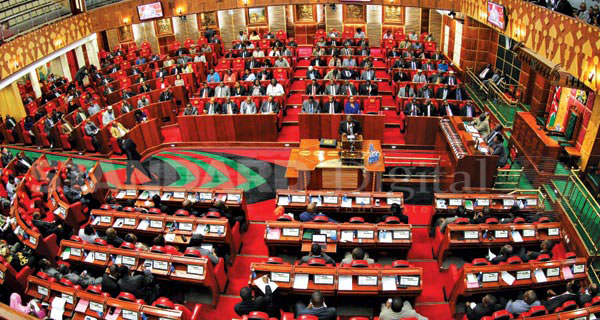×
The Standard e-Paper
Join Thousands Daily
 |
| National Assembly PHOTO:COURTESY |
By ALPHONCE SHIUNDU
The National Assembly handed President Uhuru Kenyatta near-absolute control over journalists and media enterprises in the country when it approved his despotic memorandum without any amendments.